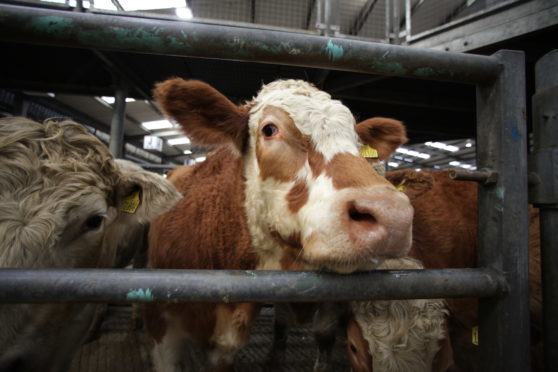Governments, vets and breed societies have appealed to UK livestock farmers to be vigilant after two cattle imported from Central France tested positive for Bluetongue Virus (BTV8).
Movement restrictions are in place at the affected premises in Yorkshire and the cattle have been culled. Meanwhile testing is continuing on the other stock in the consignment and restrictions will remain in place on the premises for at least several weeks until local midges are ruled out as the source of the disease.
The UK has been officially free from Bluetongue since July 2011 and will retain its disease-free status because routine tests picked up the infection. However BVA senior vice-president John Fishwick said the discovery should act as a reminder that farmers, vets and government agencies needed to be vigilant to the threat of disease spread.
“All livestock keepers should be reminded of the vital importance of responsible sourcing of animals, and of fully understanding the potential disease risks of importing from areas where disease is known to be circulating,” he said.
“Farmers should always consult their vet and act within their farm health plan when sourcing new animals.
“They should also discuss options such as vaccination as one of the main methods of disease control.”
NFU Scotland’s animal health and welfare policy manager Penny Middleton said the discovery was a real concern for Scottish livestock farmers.
She added: “While the Bluetongue virus has been spreading in French livestock for some time, it was always unlikely that midge-borne infection would reach Scotland this year and that importation continues to present the greatest risk.”
Bluetongue does not pose a threat to human health or food safety, but it causes reduced milk yield in cows, infertility in sheep and in the most severe cases is fatal for infected animals. Signs of the disease include eye and nasal discharge, drooling, swelling around the head or mouth, lethargy and lameness.
The UK’s deputy Chief Veterinary Officer (CVO), Graeme Cooke, said: “Farmers should work with their importer to make sure effective vaccination needs are complied with, source animals responsibly and consider the health status of their own herd if they are not protected.”
nnicolson@thecourier.co.uk










